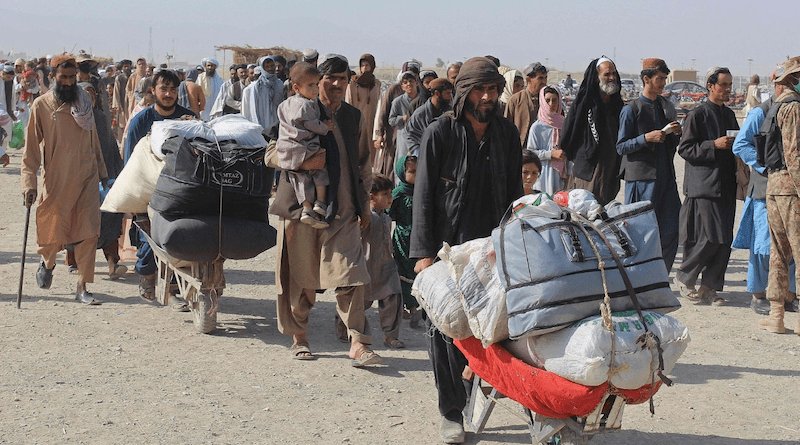Pakistan’s Refugee Dilemma – OpEd
By Fatima Azhar
Over the decades, millions of Afghans have made their way to Pakistan in a desperate attempt to flee violence and political instability in their home country. The recent influx spiked the number of total Afghans residing in Pakistan to a staggering 3.7 million. This figure is divided into four categories: Proof of Registration (PoR) card holders, Afghan Citizen Cards (ACC) holders, and undocumented Afghans and new arrivals. As per the United Nations High Commissioner for Refugees (UNHCR), there are 1.32 million PoR cardholders, 840,000 ACCs holders, 775,000 undocumented Afghans, and 600,000 new arrivals.
The latest figures on PoR card holders are the result of the Documentation Renewal and Information Verification Exercise (DRIVE), which was carried out in collaboration with the Ministry of States and Frontier Regions (SAFRON), the Chief Commissionerate for Afghan Refugees (CCAR), and UNHCR, with technical assistance from the National Database and Registration Authority (NADRA). This initiative was carried out under the umbrella of the Support Platform for the Solutions Strategy for Afghan Refugees (SSAR), which was launched in 2019.
Through this exercise, nearly one million PoR cards have been renewed, which facilitates refugee self-reliance in Pakistan. They provide them with proof of identity, a temporary stay, and freedom of movement. Additionally, enabling faster access to banking, healthcare, and educational services due to their technological compatibility with Pakistani authentication systems. Similarly, additional data on the socioeconomic conditions of the refugees were gathered to provide targeted assistance in Pakistan for self-sufficiency and tailored support to those willing to return to Afghanistan.
The Global Compact of Refugees (GCR), which outlines the framework for a more responsible burden-sharing of refugees, is the foundation of these efforts. The GCR enables the host countries and the country of origin to activate a support platform to broaden the support base for the protracted crisis. Through the SSAR platform, Pakistan has increased the integration of registered Afghan refugees into its national public services. Extending the support not only strengthens self-reliance but also improves their living conditions, creating protective refugee environments. These efforts, although commendable, is not enough for a sustainable solution to the crisis.
With the government’s continued reliance on humanitarian assistance, the resulting system is not self-sufficient, because the refugees are perceived as just beneficiaries without making sound contributions to the economy. To rebuild their lives, a combination of humanitarian assistance and development policies must be enacted which will enable them to integrate into the host communities. While Pakistan has opened up some of its social services to Afghan refugees, it is imperative to integrate them into the workforce. Despite being barred from participating in the formal economy, Afghans have permeated the formal economic realm through informal networks. They are present in various industries, notably transportation, construction, and retail. Instead of letting a parallel system run unabated, it will prove beneficial to merge them into formal economic channels. This can be achieved by increasing the capacity of vocational training institutes. Since 2018, the UNHCR in collaboration with the National Vocational and Technical Training Commission (NAVTTC) has equipped 5,010 Pakistani host community members and Afghan refugees with technical skills so that they can support themselves. This represents a very small fraction of the population, while the majority continues to face obstacles in entering the skilled labor market.
Despite Pakistan’s non-signatory status of the 1951 Refugee Convention and the 1967 Additional Protocol, it has been generously hosting a large population of refugees. Yet the setup is proving to be counter-productive because the state continues to invest in the refugees while getting little to no returns. On one hand, we have given them access to our social services, on the other, we deny them the chance to integrate into the formal economy. Four decades down the line, Pakistan still has not come up with a comprehensive policy that benefits the refugees and the state alike – which remains the need of the hour.
* Fatima Azhar is a research officer at the Islamabad Policy Research Institute (IPRI) and has a deep interest in refugee movements and Asian geopolitics. She can be reached at [email protected]

